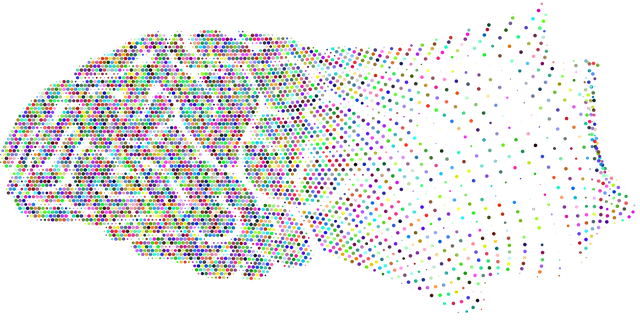Mental health policies in Aurora are vital for accessible, quality care, guiding resource allocation and service delivery models, especially for specialized treatments like ADD/ADHD evaluations and therapy. Comprehensive initiatives, including Social Skills Training, Emotional Intelligence programs, and policy-driven Stress Reduction Methods, enhance therapeutic outcomes and promote long-term mental wellness. Advocacy groups highlight personal struggles and research to drive policy changes, focusing on improving access to quality mental health services, including Aurora's ADD-ADHD evaluations and therapy. This holistic approach, integrating evidence-based practices and local context adaptations, fosters a society prioritizing mental well-being through preventative measures and comprehensive care, empowering individuals to manage conditions like ADHD with support from tailored treatment plans.
Mental health policy analysis and advocacy are vital components in ensuring equitable access to treatment and supportive therapy. This article delves into several key areas, including understanding mental health policy and its profound impact on treatment accessibility, the transformative role of advocacy in shaping legislation, and innovative approaches like Aurora ADD-ADHD evaluations for unlocking tailored therapeutic pathways. We also explore practical strategies for successful policy analysis and implementation, with a special focus on enhancing access to care through targeted interventions such as Aurora ADD-ADHD evaluations.
- Understanding Mental Health Policy and Its Impact on Treatment Access
- The Role of Advocacy in Shaping Effective Mental Health Legislation
- Aurora ADD-ADHD Evaluations: Unlocking Supportive Therapy Pathways
- Strategies for Successful Mental Health Policy Analysis and Implementation
Understanding Mental Health Policy and Its Impact on Treatment Access

Mental health policies play a pivotal role in shaping the availability and accessibility of treatment for individuals struggling with their psychological well-being. These policies dictate resource allocation, service delivery models, and coverage guidelines, all of which directly influence the quality and reach of mental health care. In many regions, including Aurora, access to specialized services like ADD-ADHD evaluations and therapy has been transformed by policy interventions.
Comprehensive mental health initiatives often incorporate strategies such as Social Skills Training and Emotional Intelligence programs to enhance therapeutic outcomes. Additionally, policies promoting Stress Reduction Methods can significantly mitigate the impact of mental health disorders on daily life. By addressing these aspects through well-designed legislation, communities can foster an environment that not only provides equal access to care but also equips individuals with resilience and coping mechanisms for long-term mental wellness.
The Role of Advocacy in Shaping Effective Mental Health Legislation

Advocacy plays a pivotal role in shaping effective mental health legislation by amplifying the voices of individuals who have experienced challenges with their mental well-being, including those dealing with conditions like ADD/ADHD and trauma. Through passionate campaigns, advocacy groups bring attention to the importance of accessible and quality mental health services, such as Aurora’s ADD-ADHD evaluations and therapy offerings. By sharing personal stories and presenting research, these efforts influence policy decisions that directly impact how societies support individuals navigating stress, trauma, or other mental health issues.
Effective advocacy fosters a culture where mental health is prioritized, encouraging the development of policies centered around prevention, early intervention, and comprehensive care. It pushes for increased allocation of resources towards Trauma Support Services, implementation of evidence-based Stress Reduction Methods, and promotion of Mind Over Matter principles that empower individuals to take control of their mental health. Ultimately, advocacy contributes to a more inclusive and supportive societal environment where everyone has the chance to thrive with the help of adequate mental health support.
Aurora ADD-ADHD Evaluations: Unlocking Supportive Therapy Pathways

In the context of mental health policy analysis, Aurora ADD-ADHD Evaluations play a pivotal role in unlocking supportive therapy pathways for individuals grappling with Attention Deficit Disorder (ADD) and Attention Deficit Hyperactivity Disorder (ADHD). These comprehensive evaluations not only provide accurate diagnoses but also offer insights into the unique challenges faced by each individual. By integrating evidence-based practices, therapists can tailor interventions that go beyond mere symptom management to address underlying issues such as self-esteem improvement and confidence boosting.
The process begins with a thorough assessment that considers not just cognitive functions but also emotional and social aspects, crucial for fostering empathy building strategies. Through advanced tools and techniques, Aurora ADD-ADHD Evaluations ensure that treatment plans are individualized, catering to the specific needs of each patient. This personalized approach enhances therapeutic outcomes, enabling individuals to navigate their challenges with greater resilience and improved life quality.
Strategies for Successful Mental Health Policy Analysis and Implementation

Successful mental health policy analysis and implementation require a multifaceted approach. One key strategy is to leverage evidence-based practices, ensuring that policies are informed by robust research and clinical data, such as those derived from Aurora ADD-ADHD evaluations and therapy sessions. This involves systematically reviewing existing programs, identifying best practices, and adapting them to local contexts. Collaboration between stakeholders, including healthcare providers, policymakers, and community organizations, is vital for developing comprehensive strategies that address the unique needs of diverse populations.
Community outreach program implementation plays a significant role in mental health policy advocacy. Engaging communities directly through educational campaigns, support groups, and targeted interventions can foster coping skills development and promote early intervention. By integrating these initiatives with policy reforms, advocates can create a more inclusive and responsive mental healthcare system that better supports individuals and families facing various challenges, including attention-deficit/hyperactivity disorder (ADHD).
Mental health policy analysis and advocacy play a pivotal role in shaping accessible and effective treatment systems. By understanding the impact of policy on treatment availability, we can empower advocates to drive change through legislative reform. As highlighted by Aurora ADD-ADHD evaluations, unlocking supportive therapy pathways is a tangible outcome of this process. Implementing successful policies requires strategic analysis, fostering collaboration among stakeholders, and leveraging evidence-based practices. Through these collective efforts, we can ensure that mental health services are inclusive, equitable, and life-changing for all individuals in need, particularly those with conditions like ADD/ADHD.














